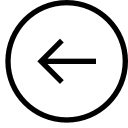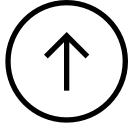

| CSC300 / CSC402: Example: Computing Max [9/9] |   |
From Week 1: Efficient way to compute max
Loop Invariant: m contains the maximum value we've seen from a[0] through a[i-1].
01 |
package algs11; import stdlib.*; public class PlaygroundMaxPerformance { public static double max (double[] a) { double m = a[0]; for (int i = 1; i < a.length; i++) { if (m < a[i]) { m = a[i]; } } return m; } } |
We say this code is efficient. Time complexity: O(n).
From Week 1: Inefficient way to compute max:
Loop Invariant (outer loop): The elements from a[0] through a[i-1] are not the max.
01 |
package algs11; import stdlib.*; public class PlaygroundMaxPerformance { public static double max (double[] a) { for (int i=0; i < a.length; i++) { boolean isMax = true; for (int j=0; j<a.length; j++) if (a[j] > a[i]) isMax = false; if (isMax) return a[i]; } throw new IllegalArgumentException(); } } |
We say this code is inefficient. Time complexity: O(n^2).